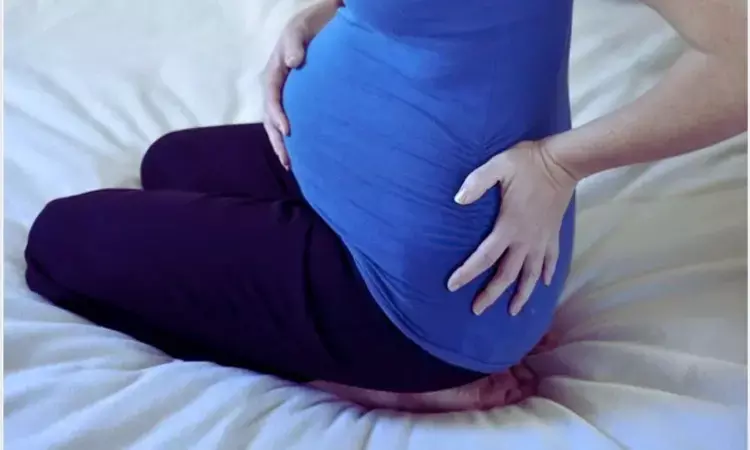- Home
- Medical news & Guidelines
- Anesthesiology
- Cardiology and CTVS
- Critical Care
- Dentistry
- Dermatology
- Diabetes and Endocrinology
- ENT
- Gastroenterology
- Medicine
- Nephrology
- Neurology
- Obstretics-Gynaecology
- Oncology
- Ophthalmology
- Orthopaedics
- Pediatrics-Neonatology
- Psychiatry
- Pulmonology
- Radiology
- Surgery
- Urology
- Laboratory Medicine
- Diet
- Nursing
- Paramedical
- Physiotherapy
- Health news
- Fact Check
- Bone Health Fact Check
- Brain Health Fact Check
- Cancer Related Fact Check
- Child Care Fact Check
- Dental and oral health fact check
- Diabetes and metabolic health fact check
- Diet and Nutrition Fact Check
- Eye and ENT Care Fact Check
- Fitness fact check
- Gut health fact check
- Heart health fact check
- Kidney health fact check
- Medical education fact check
- Men's health fact check
- Respiratory fact check
- Skin and hair care fact check
- Vaccine and Immunization fact check
- Women's health fact check
- AYUSH
- State News
- Andaman and Nicobar Islands
- Andhra Pradesh
- Arunachal Pradesh
- Assam
- Bihar
- Chandigarh
- Chattisgarh
- Dadra and Nagar Haveli
- Daman and Diu
- Delhi
- Goa
- Gujarat
- Haryana
- Himachal Pradesh
- Jammu & Kashmir
- Jharkhand
- Karnataka
- Kerala
- Ladakh
- Lakshadweep
- Madhya Pradesh
- Maharashtra
- Manipur
- Meghalaya
- Mizoram
- Nagaland
- Odisha
- Puducherry
- Punjab
- Rajasthan
- Sikkim
- Tamil Nadu
- Telangana
- Tripura
- Uttar Pradesh
- Uttrakhand
- West Bengal
- Medical Education
- Industry
Pregnancy-Related Acute Kidney Injury Linked to 52-Fold Higher Risk of Serious Renal Complications: Meta-Analysis

UK: Acute kidney injury (AKI) during pregnancy dramatically amplifies a woman’s risk of serious heart and kidney complications, a new systematic review and meta-analysis published in BJOG: An International Journal of Obstetrics and Gynaecology has shown.
The pooled data reveal striking increases in the likelihood of adverse events—women who developed acute kidney injury faced a 52-fold greater risk of severe renal problems, a 23-fold higher risk of both heart failure and stroke, a nine-fold higher chance of maternal death, and nearly a four-fold rise in intensive care unit (ICU) admissions.
The analysis was led by Dr. Deepthika Jeyaraman from the Academic Department of Obstetrics and Gynaecology at University Hospital of North Midlands, Stoke-on-Trent, UK, in collaboration with colleagues across multiple institutions. Their goal was to quantify the long-term cardiovascular and renal consequences of AKI during pregnancy, a complication already known to endanger maternal and fetal health but not fully understood in terms of future heart and kidney outcomes.
To conduct the review, the researchers systematically searched MEDLINE, the Cochrane Library, and EMBASE for studies examining cardiovascular and renal complications after pregnancy-related AKI. Seventeen studies met the inclusion criteria, encompassing a combined population of more than 50 million pregnant women worldwide. Among them, 36,806 women experienced AKI. Using a random-effects model, the investigators calculated pooled odds ratios to determine risk.
Their findings were striking:
- Baseline chondrocalcinosis was identified as an independent predictor of incident knee osteoarthritis after adjusting for age, sex, and body mass index.
- Meta-analysis of the two cohorts showed a pooled odds ratio of 1.75 for developing radiographic knee osteoarthritis in participants with chondrocalcinosis.
- The association remained significant in participants with completely normal baseline knees (Kellgren and Lawrence grade 0), with a pooled odds ratio of 1.77.
- Chondrocalcinosis did not consistently predict the onset of knee pain, indicating that structural joint changes may occur before symptoms appear.
The authors caution, however, that their meta-analysis has limitations. Many included studies were retrospective, raising concerns about data quality and the possibility of incomplete or inconsistent historical records. Variability in populations, healthcare systems, and study methodologies contributed to heterogeneity, and small sample sizes for some outcomes produced wide confidence intervals. Additionally, the absence of a universally accepted definition of pregnancy-related AKI and inconsistent reporting of factors such as gestational age or disease severity complicate interpretation.
Despite these caveats, the researchers emphasize that their results highlight AKI in pregnancy as a critical warning sign for long-term health. They advocate for careful post-pregnancy monitoring of affected women to enable early detection and management of cardiovascular and renal complications. The study also calls for future research to establish standardized criteria for diagnosing AKI during pregnancy and to explore the biological mechanisms linking kidney injury to later cardiac and renal disease.
"The large-scale analysis highlights the need for heightened surveillance and follow-up of women who experience AKI while pregnant. By recognizing and addressing these risks early, clinicians may help prevent the serious, and sometimes fatal, complications revealed by this comprehensive review," the authors concluded.
Reference:
Jeyaraman, D., Peiris, D. P., Lambie, M., Bramham, K., Fish, R., Alahmdi, H., Mamas, M. A., & Wu, P. Cardiovascular and Renal Outcomes Following Acute Kidney Injury in Pregnancy: A Systematic Review and Meta-Analysis. BJOG: An International Journal of Obstetrics & Gynaecology. https://doi.org/10.1111/1471-0528.18352
BJOG: An International Journal of Obstetrics and GynaecologyAcute Kidney Injurypregnancycardiovascular disease
Source : BJOG: An International Journal of Obstetrics and GynaecologyDr Kamal Kant Kohli-MBBS, DTCD- a chest specialist with more than 30 years of practice and a flair for writing clinical articles, Dr Kamal Kant Kohli joined Medical Dialogues as a Chief Editor of Medical News. Besides writing articles, as an editor, he proofreads and verifies all the medical content published on Medical Dialogues including those coming from journals, studies,medical conferences,guidelines etc. Email: drkohli@medicaldialogues.in. Contact no. 011-43720751
Next Story


